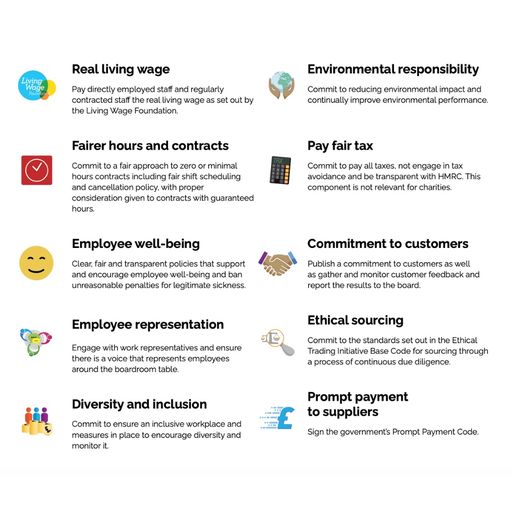Today, late payments are one of the defining features of the UK SME landscape. It is a wide-reaching problem that directly affects three in five SME owners and indirectly impacts a significant portion of the UK workforce (Barclays). While the financial repercussions of late payments are considerable, the impact on small business owners’ mental health is just as troublesome. In this article, we examine the effect late payments have on mental health and what steps can be taken to resolve the issue.
An established late payment culture
In 2021, the UK boasted 5.548 million small businesses (defined as having 0-49 employees), constituting 99.2% of all UK businesses (GOV UK). 62% of those businesses have experienced an increase in late payments and/or had payments completely frozen since COVID (FSB).
One in three UK businesses reports that late payments threaten their survival.
(Time Finance)
That is the highest figure in Europe. Late payments aren’t confined to a few isolated cases, nor is it a minor concern. Worryingly, late payments have become a part of the UK business culture. And it has a real and measurable impact on the lives of hardworking business owners.
For some small businesses, late payment means they cannot invest in growing the business. For many, it means they struggle to sustain their business. For others, it means the journey is over.
The cost of late payments to small businesses
The financial cost of late payments for micro, small and medium-sized businesses is clear. Smes are the engine room of the UK economy and the heart of communities up and down the country. The repercussions are felt at every level if they cannot be sure of their cash flow.
A lack of cash flow clarity means investing in your own business feels far riskier. This limits innovation and hampers growth, resulting in a sluggish commercial environment and stagnating businesses. This is only exacerbated by the current energy price crisis, the fallout from Brexit and the slow post-pandemic recovery. Right now, small businesses need certainty more than ever.
The average small business is owed £23,360 in overdue invoices (The Accountant). That is a significant hole in any company’s finances. With this in mind, it comes as little surprise that a remarkable 37% of UK small business owners have considered closing their company because of cash flow issues caused by late payments. (The Accountant).
While this causes considerable problems for the small businesses owed this money, it also causes disruptions in larger organisations’ supply chains.
A devastating mental health impact
Though the financial cost of late payments is widely recognised, we often overlook the impact on individuals. For many workers, separating their professional and personal lives and ensuring they do not take work home with them is a challenge. For small business owners, it is almost impossible.
This has a terrible and terrifying effect on those individuals’ mental health. 88% of people who run micro-businesses (less than ten employees) worry about late payments (Brodmin). A quarter of SME business owners say that late payments harm their life outside the workplace. 17% of all business owners say late payments undermine their confidence in their professional abilities (Pay UK).
PPD research shows that the four leading mental health issues resulting from late payments are stress, insomnia, depression and extreme anger. One in nine business owners has considered accessing professional support to help cope with their anxiety over late payments (Pay UK). Business owners are suffering personally due to their customers’ inability or unwillingness to pay invoices within terms.
There is also a clear link between physical and mental health. High stress levels can lead to severe health problems like heart disease (Mental Health). It also exacerbates existing conditions like asthma and gastrointestinal disease. Poor mental health results in poor physical health and significantly strains the NHS.
Powerless and lacking recourse
Many small business owners feel powerless when faced with late payments. They have few recourses, and chasing payment is usually time-consuming, expensive and ineffective. This only adds to the problem. The feeling that nothing can be done compounds the stress and anxiety business owners already feel.
In a sense, this is what we mean by the UK building a culture of late payments. The practice is accepted, generally goes unpunished, and those on the receiving end can do nothing about it. Though the practice is pervasive, larger businesses (the organisations responsible for late payment) are typically unaware of its effect on small business owners’ day-to-day lives.
Part of the process of changing this culture of late payments involves raising awareness. The better big businesses understand their role in the problem and the repercussions (both financially and on mental health), the more likely they are to make changes. However, awareness alone is not enough.
We believe improving the situation requires a three-pronged approach.
1 Making larger businesses aware of the effects of late payments and their responsibilities to smaller companies.
2 Developing tools that make payment within agreed terms easier.
3 Introducing new legislation to tackle and eradicate this culture of late payments.
Raising awareness and encouraging ethical buying
Let’s start by looking at the first of these points – making larger organisations aware of the problem and their responsibilities. ESG regulations are one of the key ways we can achieve this.
ESG stands for Environmental, Social and Governance. The UK government introduced the ESG regulations as a response to the COVID pandemic and as part of its programme for a “Green Industrial Revolution.” They emphasise a new way of doing business – one that recognises the environmental, social and governance challenges we face and the role commerce has to play in creating a brighter future.
In the context of late payments, the Social element of ESG is most important. ESG aims to encourage companies to become “ethical buyers.” Being an ethical buyer should mean you pay your suppliers on time. Liz Barclay, the Small Business Commissioner, made this clear in a recent conversation with Saltare. “We need to get payment performance as an ESG standard,” she noted. “It is about looking at your payment practices and thinking about how well you treat everybody in your supply chain.”
If payment performance were to become a recognised part of the ESG regulations, it would be a significant step forwards for small business owners. Though ESG reporting is not currently mandatory, experts suspect that the regulations will become more rigorous and comprehensive over the coming years. The government hopes that businesses will adopt ESG reporting without the need for legislative coercion and that it will become a widely accepted framework for commercial operations.
Introducing tools that facilitate payment to terms
Many larger organisations do not maliciously or intentionally withhold payment. In the vast majority of instances, a lack of awareness or complex bureaucracy causes delays. Between large organisations and micro and small businesses, there is a disconnect.
By their very nature, large companies are impersonal. They are an amalgamation of finely tuned systems and processes that enable the business to operate on a large scale. On the other hand, micro and small businesses are very personal. Micro businesses are often indistinguishable from the individual running them. Regularly, they are one-person operations. This disconnect means big companies find it incredibly difficult to understand the impact of their actions on small business owners.
Digital tools can bridge this gap by ensuring companies make payments within the agreed terms. Early Pay is an excellent example. An innovative payment solution, Early Pay is a quick, and easy way to offer and facilitate early payments. Once an invoice is approved, Early Pay will notify the supplier. You can offer to pay early (and choose whether to apply a discount or not). Your supplier can chose to accept the offer if they wish to.
Buyers benefit from a more efficient payment process, and a more secure and sustainable supply chain. Suppliers benefit from the peace of mind of knowing exactly when they will receive their money. There is no need to chase invoices, and the suppliers’ cash flow is guaranteed. Of course, there are a whole host of other benefits, too. Early Pay also reduces inbound invoice enquiries and operational costs, generates valuable supply chain data, and enriches the wider commercial environment.
Legislation and a government leading by example
Currently, the strongest piece of legislation a small business can rely on is the Late Payment of Commercial Debts Act. It empowers small businesses to claim a fixed sum, as well as interest, on outstanding payments. However, pursuing a large company through these means is time-consuming, expensive and stressful. It can have a significant impact on mental health. For many small business owners, it is a risk they are unwilling to take.
Though we are unaware of any current legislative response to the problem, the issue is at the forefront of the Small Business Commissioners mind. When speaking to Saltare, Liz Barclay explained that late payments are a significant issue. “Small businesses are the lifeblood of their local communities. They put so much back into the social fabric and communities they are in. But small businesses go to the wall if they cannot manage their cash flow. They need to know when the money will hit the bank account.”
However, for Liz Barclay, the problem is not confined to small businesses. Big companies also rely on a healthy small business sector to maintain their supply chains. “Until we start getting that message through to bigger businesses, they won’t see that they are shooting themselves in the foot. The next time they need that talent that contributes so much to their business’s success, it will not be there. And it will cost them a lot more to go out and look for new suppliers who can do that job.”
What next?
At Saltare, we believe micro, small and medium-sized business owners deserve to live happy and fulfilled lives. Resolving the issue of late payments will go a long way to improving their situation. To do so, three things need to occur. Buyers need to understand the effect of late payments on small business owners, the government needs to encourage settlement within terms, and companies must implement digital tools to facilitate those payments.
We believe Early Pay is an essential step towards a healthier UK business environment. It is a digital solution that benefits both buyers and suppliers and works towards a stronger, fairer and more robust supply chain. At the same time, it tackles the root cause of small business owners’ biggest challenge – late payments. If we can tackle the late payments problem, we will positively and significantly impact this developing mental health issue.
If you want to learn more about how Early Pay can help your business become an ethical buyer while also bolstering your supply chain, contributing to the wider business environment, and providing small business owners with peace of mind, please don’t hesitate to get in touch.
Finding the support you need
If you are a small business owner struggling with late payments and require mental health support, there are several places you can seek it.
Anxiety UK
03444 775 774 (available Mon to Fri, 9.30 am – 5.30 pm)
CALM
0800 58 58 58 (available 5 pm – 12am)
Mind
0300 123 3393 (available Mon to Fri, 9 am – 6 pm)
Rethink Mental Illness
0300 5000 927 (available Mon to Fri, 9.30 am – 4 pm)
Samaritans
Phone: 116 123 (available 24 hours)
SANE


